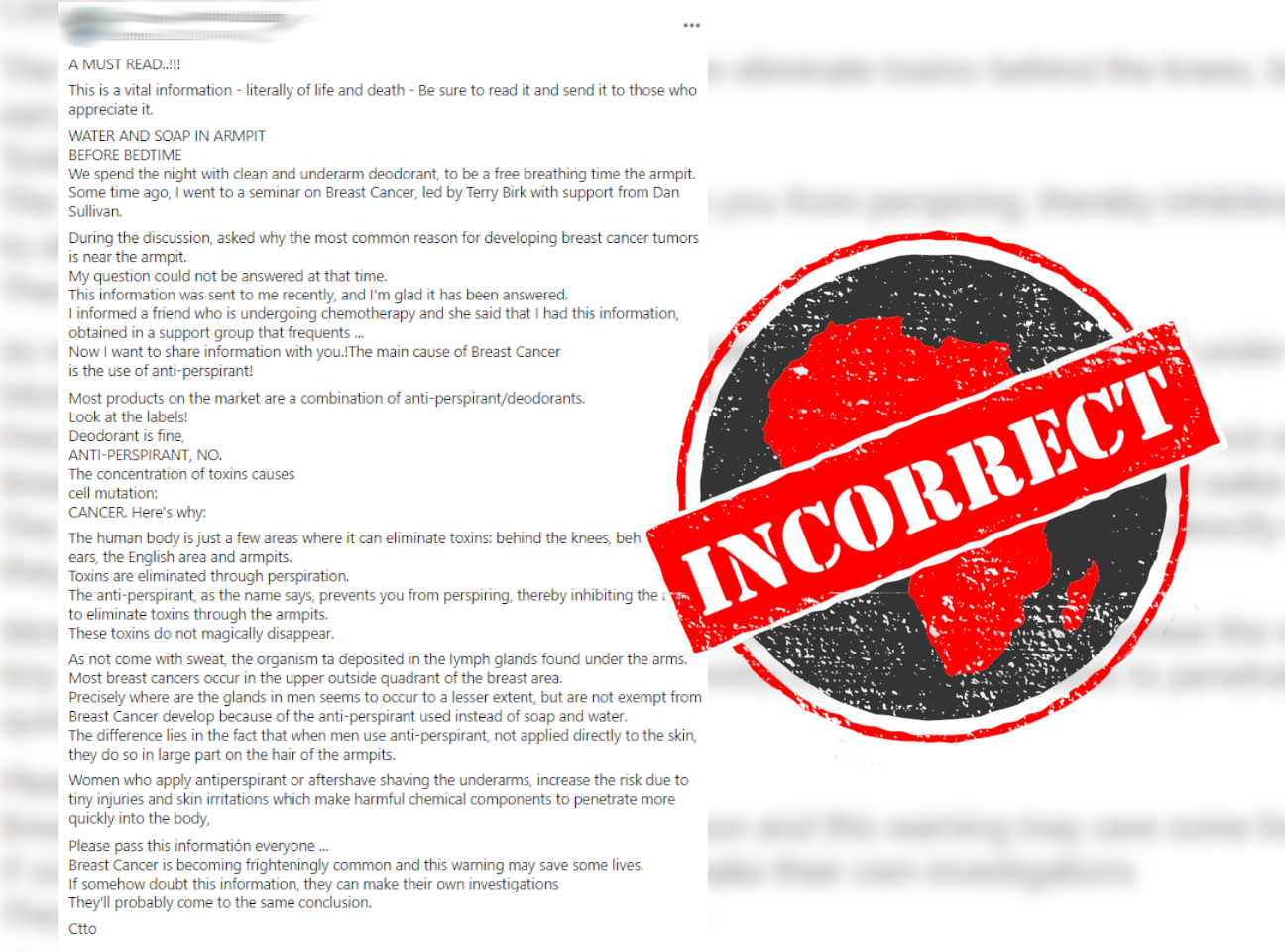A “literally of life and death” message on Facebook claims antiperspirant deodorants cause breast cancer, particularly “near the armpit”.
“Most products on the market are a combination of anti-perspirant/deodorants,” it reads. “Deodorant is fine, ANTI-PERSPIRANT, NO. The concentration of toxins causes cell mutation: CANCER.”
It says the body eliminates toxins in sweat, and can only do this from a few areas: behind the knees, behind the ears, “the English area”, and armpits. Antiperspirants “prevents you from perspiring, thereby inhibiting the body to eliminate toxins through the armpits. These toxins do not magically disappear.”
The message adds that “harmful chemical components” in antiperspirants penetrate the body, particularly of women who shave their underarms.
Antiperspirants reduce sweat, particularly from the armpits. Their most common active ingredients are compounds of aluminium, which block sweat pores for a short while.
Breast cancer mostly afflicts women, although men can also get the disease. But do antiperspirants really cause breast cancer?

‘Thoroughly and clearly debunked’
Africa Check asked Dr Leon Marais, a clinical oncologist at OnCoCare, a specialist oncology centre in South Africa, about the claim. Oncologists study and treat cancer.
The idea that antiperspirant deodorants cause cancer was a “long-held misconception”, he told us. He referred us to an article on the website of the “highly authoritative” American Cancer Society, which “thoroughly and clearly” debunked the claim.
“For each paper that suggests a possible link” between antiperspirants and breast cancer, Marais said, “there is one to prove it doesn’t”.
We also spoke to Prof Janet Poole, a paediatric oncologist at Charlotte Maxeke Academic Hospital in Johannesburg, South Africa. Paediatric oncologists treat cancer in children.
She dismissed the Facebook message’s claim, particularly that they cause breast cancer “near the armpit”.
“The statement about the ‘site’ of breast cancer and the use of antiperspirants is totally a nonsense statement,” Poole said.
“No scientific evidence links the use of these products to the development of breast cancer.”
Republish our content for free
For publishers: what to do if your post is rated false
A fact-checker has rated your Facebook or Instagram post as “false”, “altered”, “partly false” or “missing context”. This could have serious consequences. What do you do?
Click on our guide for the steps you should follow.
Publishers guideAfrica Check teams up with Facebook
Africa Check is a partner in Meta's third-party fact-checking programme to help stop the spread of false information on social media.
The content we rate as “false” will be downgraded on Facebook and Instagram. This means fewer people will see it.
You can also help identify false information on Facebook. This guide explains how.


Add new comment